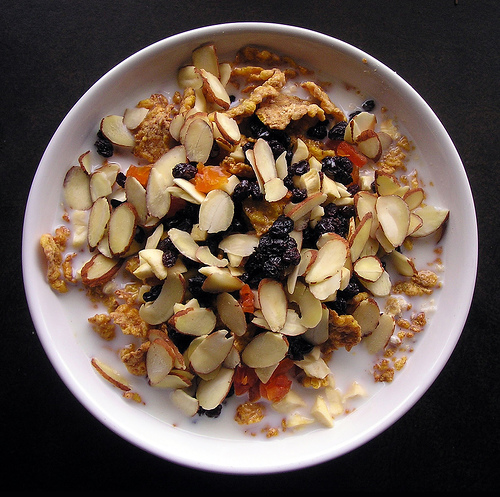
by Alex Chris
Gluten is a protein found in most types of bread and present in many cereal grains, especially wheat, rye and barley. Gluten’s main function in bread is to feed the gases during fermentation in dough, allowing it to rise and to maintain its proper shape. Apart from those special attributes, does the excess consumption of gluten affect your weight in any way? Read on to find out.
Why is gluten so important?
There are people who have intolerance to gluten products. The condition is called ‘Celiac disease’ and affects about 1% of the American population. There are also cases of people not diagnosed with this disease but who have sensitivity to gluten. However, it doesn’t mean that you have intolerance to all gluten products; so there could be some exceptions.
Although gluten is a normal substance to ingest, many people consider the heavy intake of gluten products to promote weight gain. This leads to the appearance of the numerous, and so-called, gluten-free products.

Gluten-free products and weight loss
The buzz about how gluten affects weight gain continues to this day. Those who tried it suggest that eating gluten-free products helps them to effectively lose weight. It is important to note that most people who use gluten-free products don’t entirely know how they reduced the weight in the process or what is in gluten-free products that make them do so. Basically, there is a reason behind this.
It has been determined that gluten-free is not a weight-loss diet. However, other relevant factors allow you to lose weight when you start eating gluten-free products.
Gluten-free diet forces you to be healthy
Gluten is commonly found in pizza, beer, burgers, pasta, cookies and pancakes. Once you remove those food items from your diet, then you have a higher chance of losing weight. In short, people who practice a gluten-free diet tend to consume fewer processed and fast foods. Instead, they select healthier food items like fresh fruits and vegetables, which is a major step in managing weight.
Risks
Adopting a gluten-free diet poses some risks.
First and foremost, cutting out gluten entirely will restrict the consumption of carbohydrates which in turn may lead to weight gain. A balanced diet includes some carbohydrates and totally removing carbs from your diet in the long term may lead to weight gain and not weight loss.
Second, a sudden change of diet may lead to weight gain.
Third, it’s important to note that most manufacturers of gluten-free products often replace the wheat ingredient with processed fat and sugar in order to preserve the taste. You need to be selective of the foods you eat so that you do not end up eating more than the recommended amount of fat or sugar per day. Do not just concentrate on the absence of gluten, but also focus on the gluten-free items that you eat contain a healthy amount of minerals and vitamins.
Choose a well balanced diet
If you have celiac disease or some other sort of gluten intolerance, then you have no choice other than focusing on gluten-free diets. Nevertheless, if everything is just fine and you are merely considering weight loss, then you are better off with a well-balanced diet. A balanced diet can give you the results you want without putting your health at risk.
Natural food items always yield the best results. Add various fruits, vegetables, whole grains, lean protein, olive oil, seafood, lean meat sources, beans, nuts, legumes, and low fat dairy products to your daily diet and weight loss results can be observed.
However, if you insist on eating gluten- free diet, then it is good to know what the approved foods are. Here is a simple rule of thumb: eat fresh, dried or frozen fruits and vegetables as long as they do not have any additives or thickening ingredients with gluten. You can also eat unprocessed meat products, dairy products, eggs, cereals, crackers and breads made from corn, rice, lentil flour, or amaranth. You can also check at grocery stores for packed products labeled with gluten-free, including pasta, salad dressings, chips and many more. Just watch out for the fat content and once again go for natural gluten-free food items.
Once again, gluten-free does not always mean a weight loss diet. However, if you think it helps you to lose weight and makes you feel in control, then do it. The end product is what’s important.
(Alex Chris provides weight loss tips at weight Loss help and tips. You can also read his article that deals with fast weight loss techniques.)





1 Trackback / Pingback
Comments are closed.